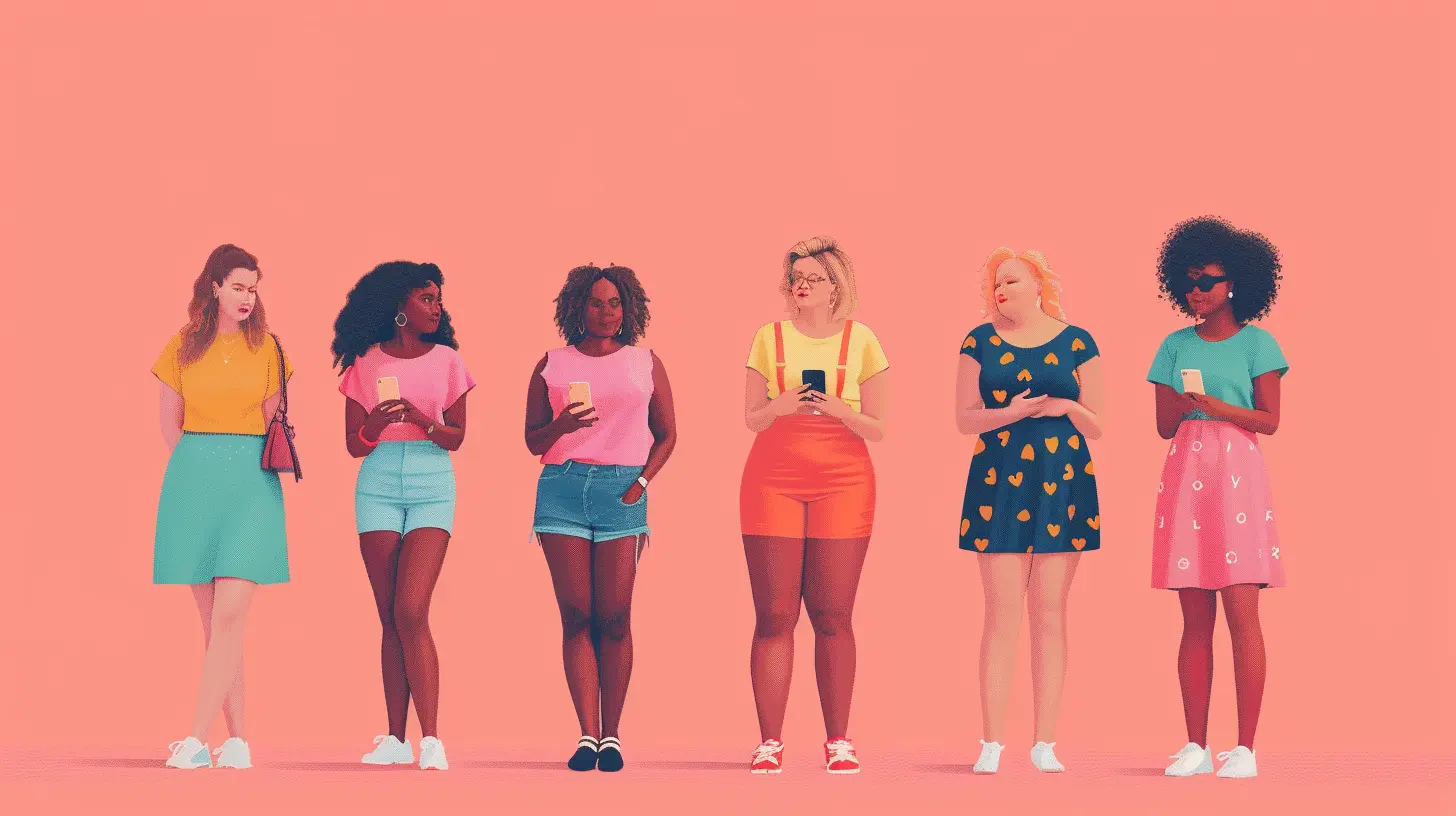Addressing Body Shaming in Social Media Spaces
24 August 2025
Introduction
Social media is a powerful tool—it connects us, entertains us, and keeps us informed. But let's be honest, it also has a darker side. One of the biggest issues people face online today is body shaming. Whether it's in the form of cruel comments, unrealistic beauty standards, or comparison traps, social media can sometimes feel like a minefield for anyone who struggles with self-confidence.
But here’s the thing—you deserve to feel good in your own skin. No one should be made to feel bad about their body, especially not by strangers hiding behind a keyboard. So, let’s talk about body shaming in social media spaces, why it’s harmful, and most importantly, how we can combat it. 
The Reality of Body Shaming on Social Media
Social media has made body shaming more rampant than ever. It’s no longer just celebrities and influencers under the microscope—anyone with an online presence can become a target.You’ve probably seen it yourself. Someone posts a picture of themselves, and within minutes, comments start rolling in:
- “She looks unhealthy.”
- “He needs to hit the gym.”
- “You should try losing weight.”
- “Wow, eat a burger!”
These words may seem harmless to some, but to the person receiving them, they cut deep. Body shaming affects people of all shapes and sizes, and it comes in many forms. It’s not just about weight—it can be about height, skin tone, hair, muscle tone, or even facial features.
Social media should be a place where we uplift one another, not tear each other down. So why do people engage in body shaming? 
Why Do People Body Shame on Social Media?
There are several reasons why body shaming exists online:1. Anonymity Encourages Cruelty
People often say things online that they would never say to someone in real life. Hiding behind a screen provides a shield of anonymity, making it easier for people to be cruel without facing consequences.2. Unrealistic Beauty Standards
Thanks to filters, Photoshop, and carefully curated images, social media is flooded with unrealistic body expectations. People start to believe that there's only one way to look beautiful, and anyone who doesn’t fit that mold becomes a target.3. Projection of Insecurities
Sometimes, those who engage in body shaming are struggling with their own insecurities. Instead of dealing with their issues, they project their negativity onto others. Hurt people hurt people—it’s an unfortunate cycle.4. Toxic Diet Culture and Media Influence
From celebrity magazines to fitness influencers promoting unhealthy crash diets, the media plays a huge role in shaping how we view our bodies. Many people grow up believing that they need to look a certain way to be accepted, leading to judgment of those who don’t fit the mold.
The Impact of Body Shaming
Body shaming isn’t just “harmless teasing”—it can have serious consequences.1. Mental Health Struggles
Constant exposure to negative comments can lead to anxiety, depression, and low self-esteem. No one should have to wake up dreading what others might say about their appearance.2. Eating Disorders
Body shaming can fuel dangerous behaviors like extreme dieting, binge eating, or other disordered eating habits. In a world where diet culture is already so pervasive, social media only adds fuel to the fire.3. Body Dysmorphia
Repeated criticism can cause people to develop warped perceptions of their own bodies. Even someone who looks perfectly fine may start seeing flaws that aren’t even there.4. Withdrawal from Social Media
Many people who experience body shaming end up deleting their social media accounts or stop posting altogether. No one should be forced into hiding over something so superficial.
How to Combat Body Shaming
Now, here’s the good news: we can fight back against body shaming and create a more positive online space. It won’t happen overnight, but small actions can make a big difference.1. Stop Engaging in Negative Conversations
If you see body-shaming comments, don’t contribute. Even if it’s just a joke, your words have power. Instead of making fun of someone’s appearance, try complimenting something about them.2. Speak Up Against Body Shaming
If you see someone being body-shamed online, say something. Call it out. Let people know that this behavior isn’t acceptable. You don’t have to be aggressive—just remind others to be kind.3. Follow Body-Positive Influencers
Social media shouldn’t just be about unattainable beauty standards. Follow people who promote self-love, inclusivity, and realness. Surrounding yourself with positive content can shift your mindset.4. Be Mindful of Your Own Self-Talk
Sometimes, we are our own worst critics. If you wouldn’t say something to a friend, don’t say it to yourself. Speak to yourself with kindness and appreciation.5. Support Movements That Promote Body Positivity
There are many great movements advocating for body acceptance—join them! Whether it’s the body positivity movement, fitness at every size, or self-love campaigns, supporting these causes can create real change.6. Educate Yourself on Body Diversity
Bodies come in all shapes and sizes, and there’s no “one size fits all” version of health and beauty. The more we understand this, the less likely we are to judge others based on their appearance.7. Block, Report, and Ignore Trolls
Not everyone is worth your time and energy. If someone is body shaming you or others, block them, report them, and move on. Their negativity does not define you.Creating a More Supportive Social Media Space
Social media is what we make it. If enough of us choose positivity over negativity, we can create an environment where people feel safe to be themselves.Imagine a world where:
- People aren’t afraid to post pictures without fear of harsh criticism.
- Beauty is celebrated in all forms, not just one standard.
- Comments are uplifting and encouraging rather than judgmental and cruel.
Sounds amazing, right? It starts with us.
So, next time you scroll through social media, ask yourself: Am I contributing to positivity, or am I fueling negativity? Your words can either lift someone up or tear them down—choose to be kind.
Conclusion
Body shaming on social media is a serious issue, but it’s one we can fight together. Whether by speaking up, being mindful of our words, or supporting body-positive movements, we can make social media a safer, more inclusive space.Remember—your body is not a trend, not a problem to be fixed, and definitely not something that needs approval from strangers online. You are enough exactly as you are.
So, let’s start today. Let’s stand up against body shaming and choose kindness instead. Because at the end of the day, self-love always wins.
all images in this post were generated using AI tools
Category:
Body PositivityAuthor:

Eileen Wood
Discussion
rate this article
1 comments
Rune Carter
This article brilliantly highlights the urgent need to combat body shaming in social media. By fostering a culture of body positivity and inclusivity, we can create healthier online environments that celebrate diversity and promote self-acceptance.
September 19, 2025 at 4:53 PM

Eileen Wood
Thank you for your thoughtful comment! Indeed, promoting body positivity and inclusivity is essential for creating a supportive online community.


